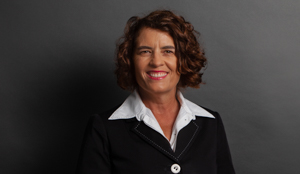COVID-19 – Australian response to regulation of medical devices
In response to the COVID-19 pandemic, the Minister for Health has exercised his power under section 41GS of the Therapeutic Goods Act 1989 (Cth) (the Act) to exempt certain medical devices from the normal requirements of assessment and inclusion on the ARTG.
Usually all medical devices regulated under the Act, must be included on the Australian Register of Therapeutic Goods (ARTG) before they can be imported or supplied or advertised in Australia. Importation or supply of a medical device which is not included on the ARTG is subject to civil and criminal penalties under sections 41MI, 41MIB and 41MK of the Act.
However there have been several exemptions put in place for COVID-19 related medical devices:
- The Therapeutic Goods (Medical Devices—Novel Coronavirus) (Emergency) Exemption 2020, which entered force on 31 January 2020 and was repealed on 22 March 2020 (Coronavirus Exemption);
- The Therapeutic Goods (Medical Devices—Face Masks and Other Articles) (COVID-19 Emergency) Exemption 2020, which entered force on 22 March 2020 (Face Masks Exemption);
- The Therapeutic Goods (Medical Devices—Accredited Pathology Laboratories) (COVID-19 Emergency) Exemption 2020, which entered force on 22 March 2020 and was repealed on 31 July 2020 (Pathology Exemption);
- The Therapeutic Goods (Medical Devices—Ventilators) (COVID-19 Emergency) Exemption 2020, which entered force on 8 April 2020 (Ventilators Exemption); and
- The Therapeutic Goods (Medical Devices—Donor Screening) (COVID-19 Emergency) Exemption 2020, which entered force on 25 June 2020 (Donor Screening Exemption)
Subject to certain conditions these exemptions cover a broad range of medical devices essential for responding to the COVID-19 crisis. Devices covered by each exemption are not required to comply with the medical device essential principles, do not need to undergo conformity assessment and do not need to be included on the ARTG prior to supply in Australia.
The Coronavirus Exemption was the first medical device exemption put in place in response to the COVID-19 pandemic. It applied to medical devices of the kind used for "the diagnosis, confirmatory testing, prevention, monitoring, treatment or alleviation of novel coronavirus" provided the goods were imported or supplied by a laboratory which is a state or territory member of the Public Health Laboratory Network and requires that the laboratory keep records of the importation, manufacture or supply of devices under this exemption. The Coronavirus Exemption was repealed and replaced by the Pathology Exemption on 22 March 2020.
The Pathology Exemption applied to in-vitro diagnostic medical devices (IVDs) for use in the "diagnosis, confirmatory testing, prevention, monitoring, treatment or alleviation" of COVID-19. These IVDs will only be exempt if imported, manufactured or supplied by an accredited pathology laboratory, or by someone exclusive for supply to an accredited pathology laboratory. Appropriate records of any IVDs supplied under this exemption must be maintained and made available on request by the Department of Health.
The Pathology Exemption was repealed on 31 July 2020 and replaced by the Donor Screening Exemption. The Donor Screening Exemption is similar in form, but exempts a narrower range of medical devices, limited to “Class 4 in-house IVD medical devices intended to be used to detect the presence of, or exposure to, SARS-CoV-2 for the purpose of assessing a person’s suitability for donating blood, blood components, blood products, cells, tissues or organs or any derivatives”. As a result, there is no longer a blanket exemption for in-house IVDs produced by accredited pathology laboratories to test for COVID-19.
The Masks Exemption applies to disposable face masks, gloves, gowns, and protective eye wear "designed to be worn by individuals to prevent the transmission of organisms". This exemption is intended to allow the Commonwealth Government to maintain a suitable stockpile of protective equipment and only applies to goods imported, manufactured or supplied under contract to the Commonwealth Department of Health or another Commonwealth agency acting on its behalf. Appropriate records of any supply under this exemption must be kept by the supplier.
The Ventilators Exemption applies to hospital ventilators manufactured in Australia in accordance with minimum technical requirements set out by the Therapeutic Goods Administration (TGA). To be covered by the exemption the ventilator must be manufactured in Australia for supply to a State or Territory hospital (i.e. cannot be exported or offered for sale generally). Prior to supply of the ventilator, the manufacturer must provide testing and risk assessment documents along with a declaration that the product is manufactured according to the minimum technical requirements and obtain written permission from the TGA. The manufacturer must also comply with normal post-market surveillance obligations (e.g. reporting malfunctions/adverse events within certain timeframes, maintaining records etc) in relation to any product supplied under this exemption.
Supply of medical devices not covered by an exemption
There has been a large increase in demand for and range of medical devices, particularly gloves, masks and testing kits, in response to the COVID-19 crisis. As discussed above, the current exemptions only apply import, manufacture and by narrow range of entities.
Many businesses across a wide range of sectors, including aged and child care providers and essential service providers such as supermarkets and public transport providers need to be able to source these products but cannot rely on the exemptions or government stockpiles. In these cases medical devices must be included on the ARTG before they are imported, manufactured or supplied in Australia. This includes cases products have been sourced directly from overseas suppliers.
Personal protective equipment
A particular area of concern is the supply of personal protective equipment (PPE) including face masks, gloves and gowns. These products are in high demand, from members of the public, customer service staff, carers and health care professionals.
PPE is not considered a medical device if it is for home, occupational or recreational use. This means that the majority of masks and gloves used by members of the public, or by employees during their occupation (e.g. care home workers) do not need to be approved by the TGA or included on the ARTG. However, care must be taken as these products will be considered PPE if they are supplied for medical purposes (e.g. for use in surgery), or if they are claimed to reduce or prevent the transmission of disease. In addition, any product which is supplied sterile will be considered a medical device.
Where PPE does have a therapeutic purpose (e.g. claims to reduce/prevent disease transmission or is labelled for use in surgery), it will be class I medical device under section 41BD of the Act. Class I devices are considered to pose the lowest risk and require the least detailed and shortest application process for inclusion on the ARTG.
Class I medical devices are not required to undergo a conformity assessment by the TGA, nor is evidence of assessment by an overseas notified body (e.g. a European CE mark) required for registration on the ARTG. However, if the masks are supplied sterile, they will be will be required to undergo conformity assessment, which substantially increases the time required to obtain an ARTG registration.
To be able to supply a Class I medical device, an Australian based sponsor must lodge an application for inclusion on the ARTG with the TGA. This must include technical documentation from the manufacturer and an Australian Declaration of Conformity, which states the manufacturer, type of device, device classification and declares that the technical requirements under the Act have been complied with. The completed application will be automatically processed and included on the ARTG.
The TGA is operating an expedited approval process for all COVID-19 related medical devices. Sponsors wishing to have a medical device considered through this pathway are requested to contact the TGA at [email protected]. Further information is available at https://www.tga.gov.au/expedited-covid-19-medical-device-application-process.
Key Takeaways
- Medical devices, including any product which has a therapeutic purpose, must be included on the ARTG prior to supply in Australia.
- In response to the COVID-19 crisis, a range of exemptions to the normal registration requirements have been put in place; however, the scope of these exemptions is very limited.
- PPE will generally not be considered medical devices unless used in a medical context or claimed to prevent the spread of disease.
- The TGA is operating an expedited approval process for all COVID-19 related medical devices.
Last reviewed: January 2021




